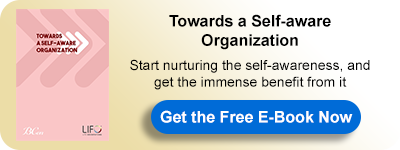Self-Awareness in Organizations
Self-awareness is becoming more important in business world, as much as in psychology. In spite of its elasticity and wide connotations, it is used to explain a lot of teams’ performance and dynamics.
Most people, as well as organizations, believe they are self-aware. In fact, self-awareness is a truly rare quality. The real experiences show that neither people nor organizations are as self-aware as they believe they are.
While organizations face a lot of challenges and problems, the most prominent problem organizations face is “not knowing” what they don’t know. Blind spots, assumptions, and over-confidence hinder the performance of both individuals and teams. But the good news is that self-awareness can be nurtured and the organizations can dramatically benefit from it if they start taking it seriously.
What is Self Awareness?
Simply put, self-awareness is an awareness of the self, with the self-being what makes one’s identity unique. These unique components include thoughts, experiences, and abilities.
Psychologist Daniel Goleman proposed a definition of self-awareness in his famous book “Emotional Intelligence,” as “knowing one’s internal states, preference, resources, and intuitions.” This definition places more emphasis on the ability to monitor our inner world, our thoughts and emotions as they arise.
Our mind is extremely skillful at storing information about how we react to a certain event to form a blueprint of our emotional life. Such information often ends up conditioning our mind to react in a certain way as we encounter a similar event in the future. Self-awareness allows us to be conscious of this conditioning and preconceptions of the mind, which can form the foundation of freeing the mind from it.*
Self-awareness is much more than a personality assessment — it’s learning to observe yourself through other people’s eyes and yours too. It requires developing a mindful mentality to avoid being the prey of overconfidence and ignorance.
*Jessie Zhu, What is Self-Awareness and Why is it Important (Positive Psychology.com)
For more about this topic, download our latest book "Towards a Self-aware Organization" for FREE:
